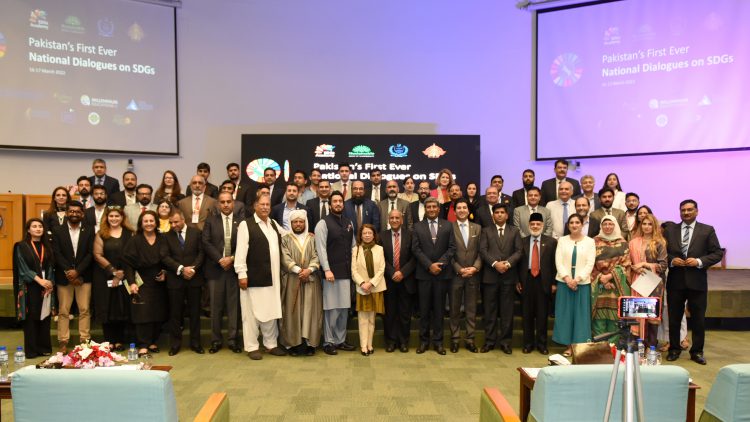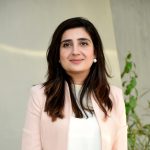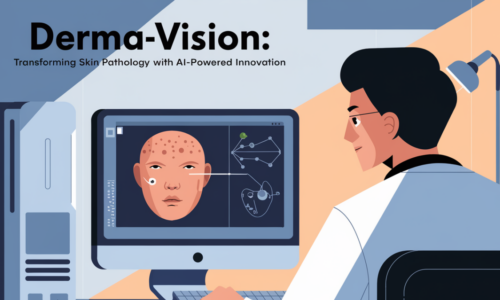The Sustainable Development Goals (SDGs) or Global Goals are a set of 17 interconnected global goals intended to serve as a “roadmap to a better and more sustainable future for all.” The United Nations General Assembly (UN-GA) established the SDGs in 2015, with the goal of achieving them by 2030. They are included in the UN-GA Resolution known as the 2030 Agenda, also known colloquially as Agenda 2030.
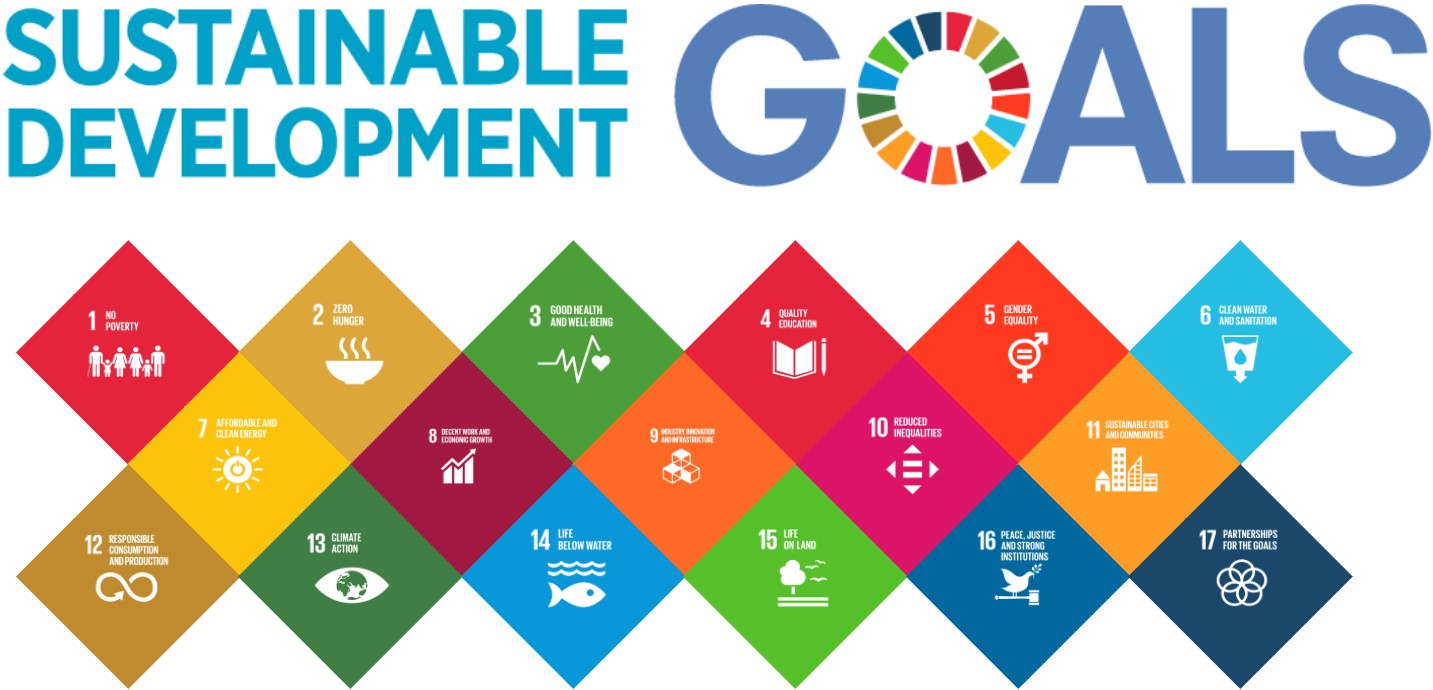
Nustainable, NUST’s Office of Sustainability, collaborated with the SDGs Academy and the state media PTV Official, to host Pakistan’s first and only National Dialogues on SDGs. The dialogues were based on the quintuple helix model, in which public, privates, social, and academic sectors alongside civil society participated to collectively chart a roadmap for the government to expedite progress on SDGs. The most laudable feature of these dialogues were the youth participation, a number of students, student bodies heads were invited to participate in these conversations as “youth representatives”, and they were given a platform to voice their concerns on all the issues discussed. These cross-sectoral dialogues took place on the 16th and 17th of March 2022 at NUST’s Jinnah Auditorium, Islamabad.
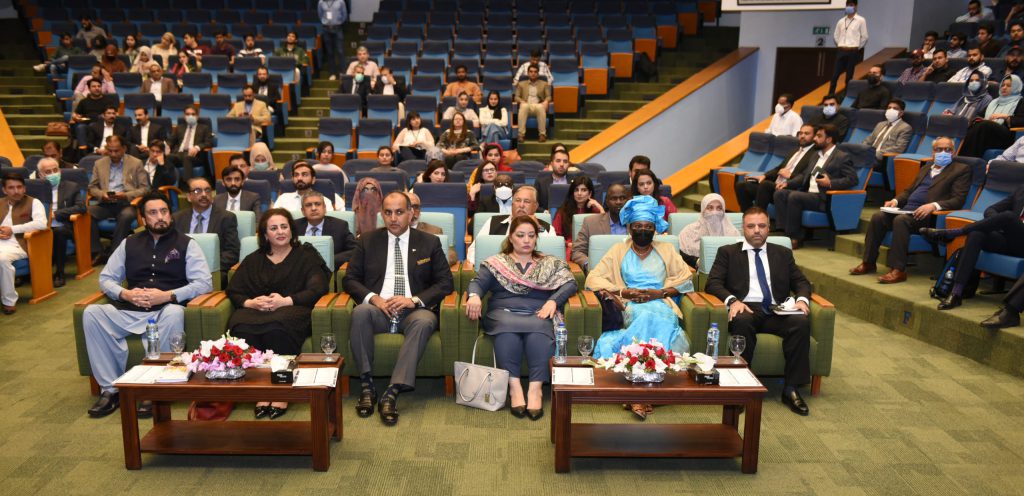
The dialogues were jointly sponsored by Schlumberger, Hashoo Group, PODA, Millenium Roots Group, and the Subja Group, and the chief guests included Mr. Shehryar Khan Afridi, Chairperson of the parliamentary special committee on Kashmir, Mr. Syed Fakhar Imam, Federal Minister of Food and Nutrition, and Dr. Ahmadou Lamin Semateh, Gambia’s Health Minister. Both days of the dialogues witnessed a healthy turnover of more than eight hundred participants from various sectors of the civil society. Leadership of more than hundred companies and organizations participated in ten panel discussions scheduled on both days, which focused on collective strategies for Pakistan’s long-term socio-economic growth.
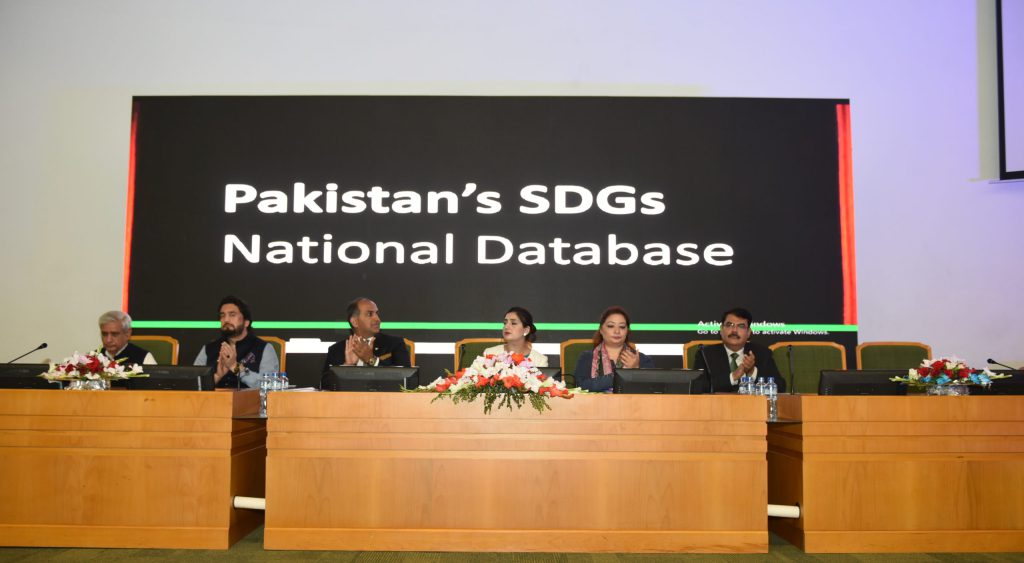
A national scale SDGs database was also launched by the worthy chief guests, which will facilitate key stakeholders to report their contributions to the relevant SDGs in their respective fields. This joint database, developed through a Public-Private Partnership, with NUST to be utilised to track, measure, report and improve the country’s performance in terms of the SDGs.
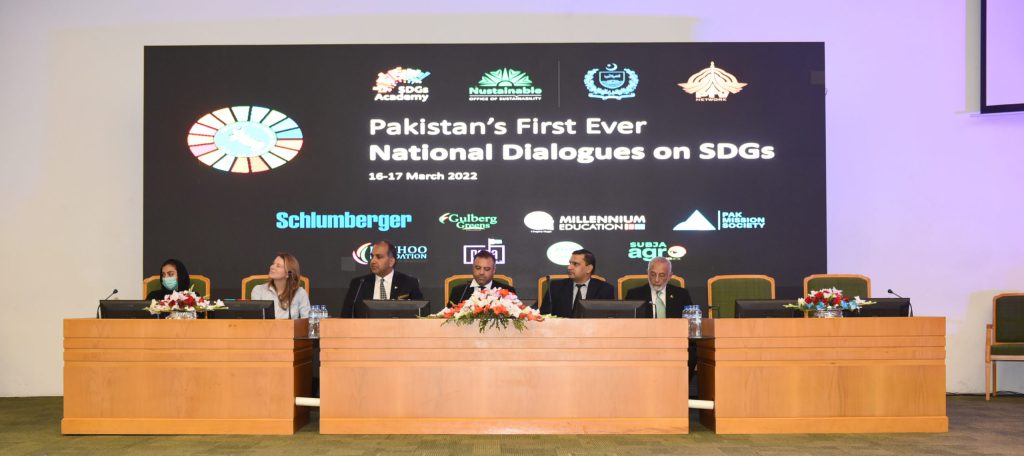
The two main panel talks in the opening ceremony were separated into two segments, each of which provided information on national and international problems, progress metrics, and gaps in reaching the SDGs. The first debate, hosted by Mr. Ammar Jaffri of the SDGs Academy, focused on the international gaps that must be bridged in order to achieve the SDGs. Ms. Marion Pfennings, Head of Development, Dr. Chaudhry Faisal Mushtaq, Founder / CEO Roots Millennium Schools, Zaurayze Tarique, Schlumberger MD-Pakistan and Yemen, Imtiaz Rastgar, CEO Rastgar Group, and Mohammad Azam, Founder & CEO IOT Voice, Australia were on this panel.
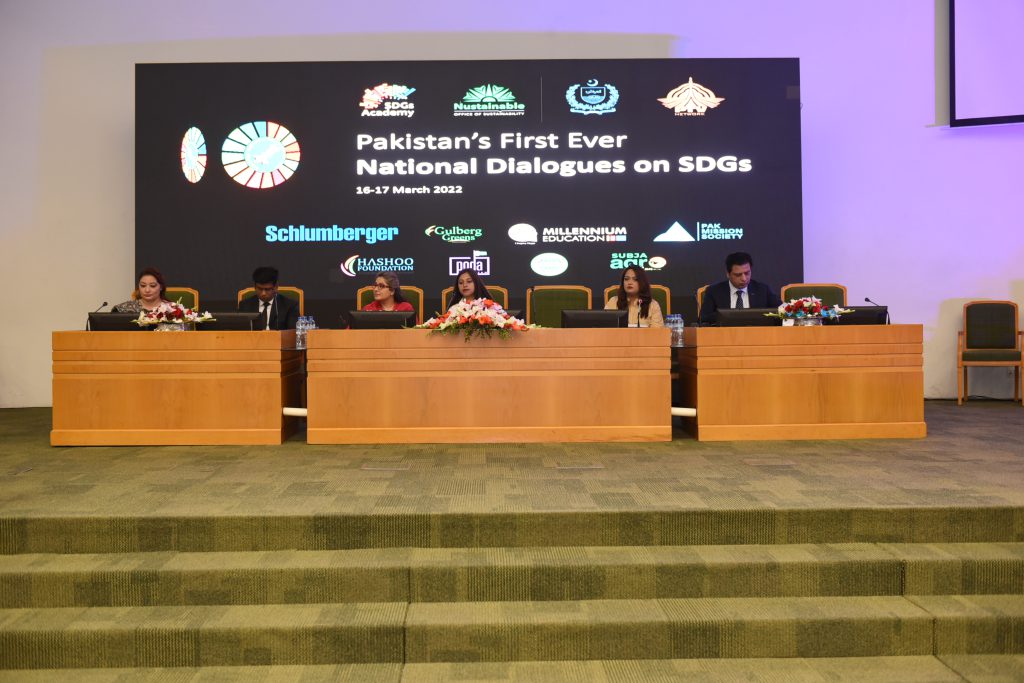
The second session, conducted by Engr. Barira Hanif, Head, NUST Office of Sustainability, focused on the national difficulties to achieving the SDGs. Ms. Shandana Gulzar, MNA, Convener on SDG 5, Ms. Romina Khursheed Alam, MNA, Member Parliamentary SDG Task Force, Mr. Tariq Malik, NADRA Chairman, Mr. Mirza Mohd. Irfan Baig, DG NAB, Ms. Herman Chishti, SDSN Global Coordinator NUST SDG Student Hub, and Ms. Kehkashan Jabeen, Program Manager Pak were the included panelists.

Following the main panel discussions, discussions encompassing all 17 SDGs, clustered in the following eight thematic areas were planned on both days:
- Education (SDG-4)
- Energy (SDG-7 & 13)
- Emerging Technologies (SDG 9 & 11)
- Environment & Tourism (SDGs 8, 13, 14 & 15)
- Health (SDG-3)
- Agriculture & Nutrition (SDG-2)
- Water & Sanitation (SDG-6)
- Human Security (SDGs 1, 5, 8, 10, 16)
Area specialists on these thematic areas were engaged in these discussions in the adjoined board rooms. The discussions were focused on addressing three main components of each sector:
- Define existing national scale challenges
- Existing and proposed solutions
- Way forward
The outcomes of the event discussions will be proposals, frameworks, and a strategic roadmap for the government to follow in order to accelerate progress on Agenda 2030 by using collective wisdom to map out a strategy to deliver on the national commitment. The next step is to summarize these talks in the form of a handbook or report with recommendations for successful policymaking and initiatives, as well as potential solutions for closing the SDGs gap. The compilation will be widely shared among relevant stakeholders in preparation for implementation and adoption.
Video 1: Coverage of Pakistan’s First National Dialogues on SGDs 2022
PTV News, the national news channel, covered the full event on both days. A media debrief was also prepared at the end of each panel discussion, during which the moderators recounted the topics addressed in their respective panels. The panel talks were also live streamed for anybody to watch as an audience. The event was also heavily publicized on NUST’s and SDG Academy’s social media platforms, with the hashtags #PNDSDGs2022 and #NUSTImpact.
The author is Deputy Director at Office of Sustainability at National University of Sciences & Technology (NUST). She can be reached at ddsustainability@nust.edu.pk.

